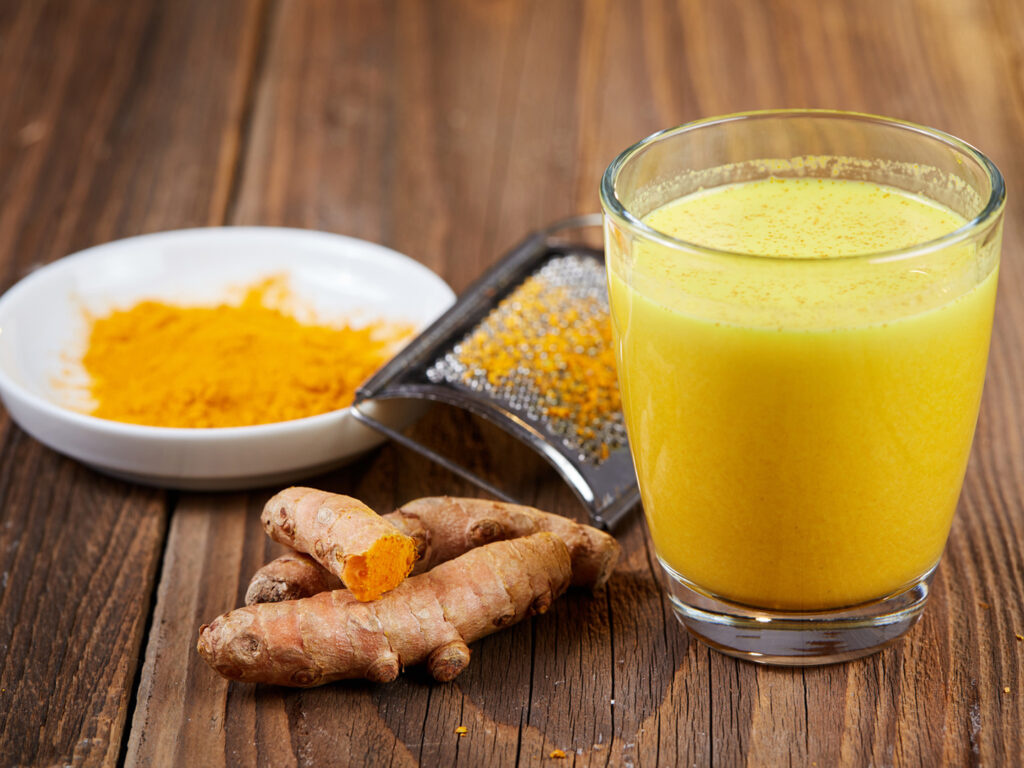Winter brings chilling breeze and frozen mornings. The temperature drops down, and the daytime gets shorter. This is the period we get shifted from the Vata season to Kapha season. Hence it is always healthy to create a healthy regimen to balance out both Vata and Kapha, during the winter time. Imbalance in these cause diseases, as it reduces immunity at a higher rate.
Winter is the season to rest and revitalize, as there are lesser daytime and longer nights. It is the time when we store our energy inside rather than spending it through activities. There is a requirement of inner warmth to balance out the outside temperature with that of the body temperature. And to accommodate such strength, heat, and balance to the body, a healthy diet is required. Here are some healthy diet practices for the winter. A typical Ayurveda cookbook for your winter health!
Turmeric Milk Drink
Ingredients :
- 1 cup fresh milk
- 1/2 inch minced ginger
- Two cardamom pods, cracked
- 2 tsp turmeric powder
- Two whole black peppercorns
- 1 tsp cinnamon
- 1 tsp of ghee
- Jaggery, maple syrup or sugar to sweeten the milk.
Directions :
Boil the milk and reduce to simmer. Add ginger, black pepper, and cardamom into it. Bring to a quick boil and then reduce to simmer. Add turmeric, cinnamon, and ghee. Heat for three to four minutes. Strain the mixture, add sweetener and serve.
Turmeric boosts immunity, and warm milk is best to retain body temperature. Spices like Cardamom and pepper will help to stay warm all day. Sore throats and runny nose can be treated with this drink.
Ginger Tea
Ingredients :
- 1-2 tbsp dried ginger
- 1 cup water
- Fresh lemon juice
- Sweetener (sugar or honey)
Directions :
Boil the water and steep the dried ginger and lemon juice into it for 5 minutes. Strain the mixture. Once it is cooled, add sweetener to taste and serve.
Ginger improves digestion and acts as a detox. Consuming ginger tea will fight respiratory problems and will strengthen the immunity. Ginger fastens the digestion process and helps in relieving congestion.
Mint Herbal Tea
Ingredients :
- 5 – 6 fresh mint leaves
- 5 – 6 holy basil leaves
- 4 – 5 lemongrass stalks about 6 inches long
- 1 cup of water
- Salt or sugar as preferred
Directions :
Boil water over medium heat. Add mint, basil leaves along with chopped lemongrass into it. Strain the mixture and add salt or sugar as the preference. Serve.
This drink will cleanse the respiratory system and keeps the body warm from inside. The essence from the leaves will boost immunity, and it cleanses the lungs and treats cough, cold and asthma.
Chickpea Pudding
Ingredients :
- 1 ½ cups of chickpea flour
- 2 cups of water
- 2-4 tbsp of jaggery or sugar
- 3 tbsp of ghee
Directions :
Saute ghee in a saucepan and add chickpea flour to it. When the flour turns brown, remove it from the heat and add water. Stir carefully and add sweetener accordingly. Serve.
Chickpea flour is rich in zinc, and it helps with clod and bronchitis. This recipe will enhance digestion and supports the immune system.
Warm food makes it easier to combat cold, and hence it is always better to heat your meals before consumption during the winter days. Drink loads of water to stay hydrated during winters and eat cooked slightly oily food. Add more veggies, spices and detox drinks in your winter regimen and stay healthy!



